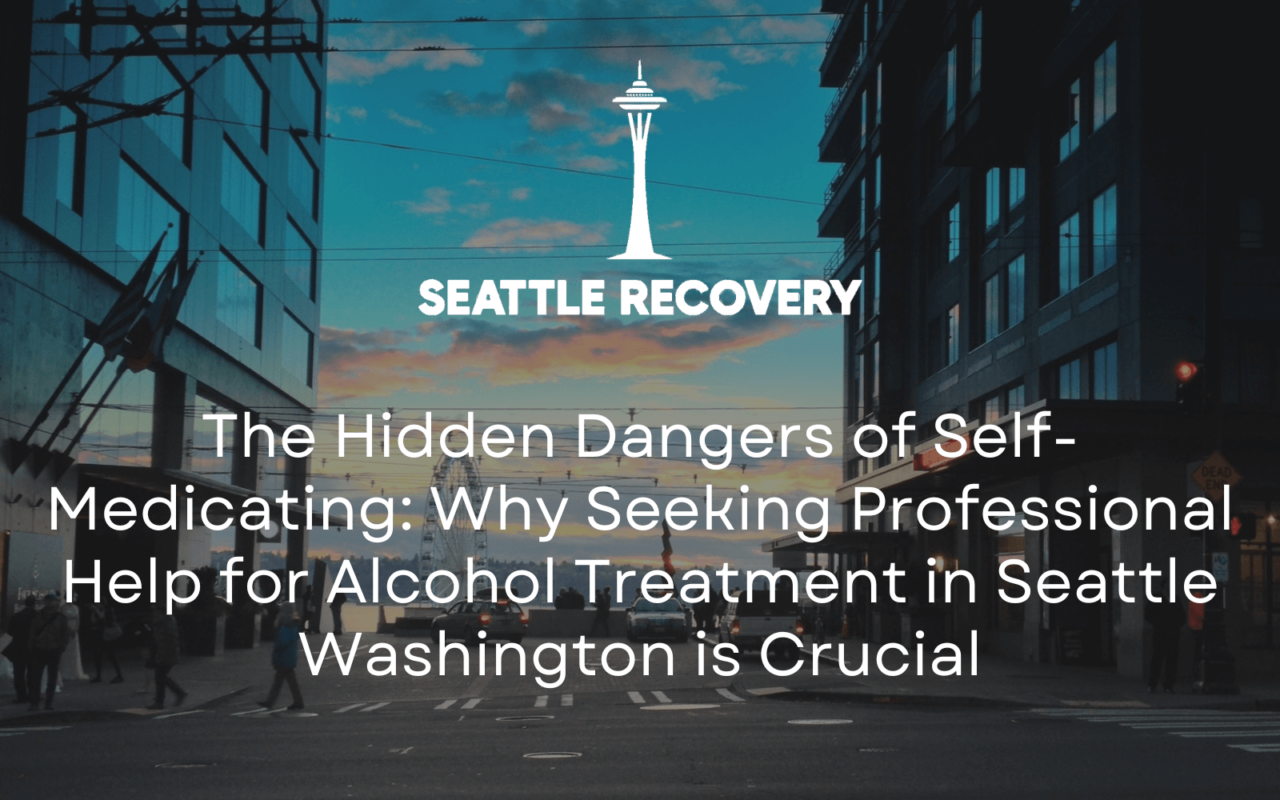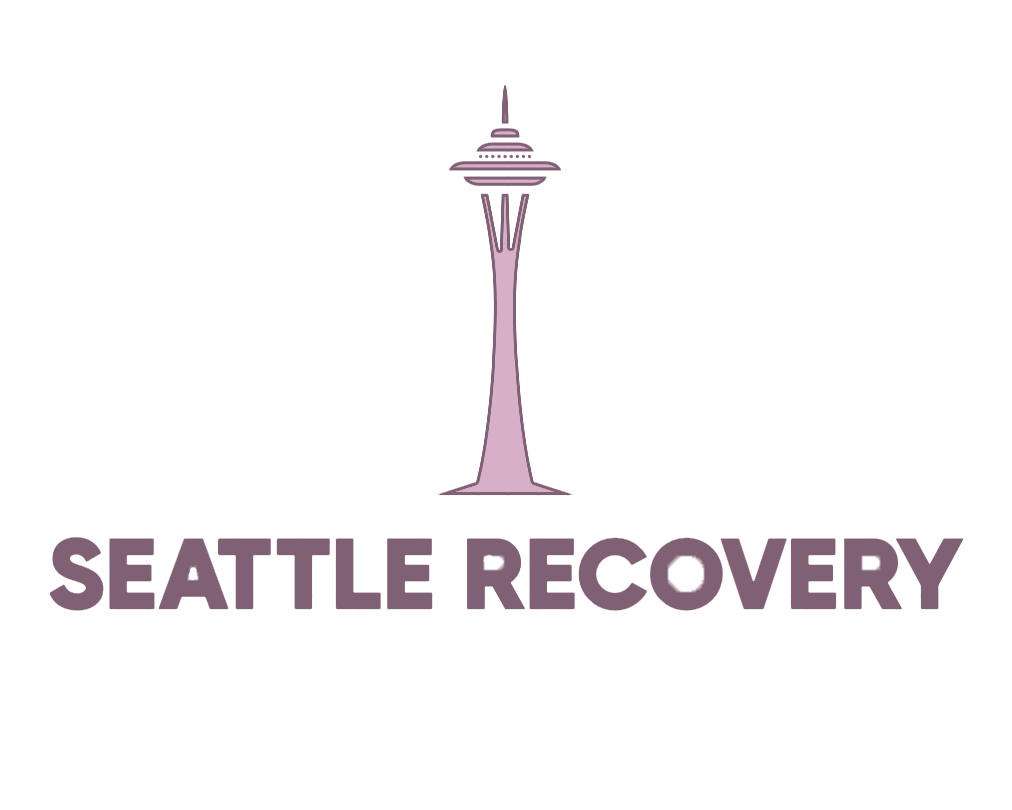Life can throw some tough curveballs—stressful jobs, personal losses, mental health struggles, and even chronic physical pain. For many, alcohol becomes an easy way to cope. A glass of wine to unwind, a shot of whiskey to numb the pain—at first, it might seem harmless. But what happens when that occasional drink turns into a regular habit or, worse, an unhealthy crutch? If you’re facing these challenges, seeking alcohol treatment in Seattle Washington, can be a critical step toward reclaiming control and finding healthier ways to cope.
Self-medicating with alcohol might seem like a way to regain control over life’s chaos, but in reality, it can leave you feeling more out of control than ever. If you or a loved one has been relying on alcohol to cope, this article will shed light on the risks of self-medicating and why seeking professional alcohol treatment in Seattle Washington, is a decision that could save your life.
What Is Self-Medicating with Alcohol?
At its core, self-medicating refers to the act of using substances—like alcohol, drugs, or even food—to cope with physical or emotional discomfort without seeking guidance from a healthcare professional. It’s a behavior often rooted in the belief that “I’ve got this,” or “I don’t need therapy; I just need a drink to calm down.” But here’s the catch: alcohol isn’t a treatment—it’s a temporary escape that, more often than not, exacerbates underlying issues over time. What may feel like a quick fix can lead to a cycle of dependency, masking the real problems rather than addressing them.
In Seattle, a city known for its booming tech industry, frequent gray skies, and skyrocketing living costs, the pressures of daily life create unique stressors for many residents. These challenges, combined with the city’s cultural focus on high performance and long work hours, make self-medicating with alcohol an unfortunately common coping mechanism. For some, it’s a way to deal with burnout from demanding jobs. For others, it’s a response to the pervasive seasonal depression that can come with months of overcast skies. Social anxiety and the pressures of maintaining relationships in a fast-paced environment can also drive individuals to reach for that glass of wine or a stronger drink, convincing themselves it’s the solution. However, relying on alcohol as a crutch often delays seeking the professional help that could provide long-term relief and healthier ways to manage these stressors.
Why Do People Self-Medicate?
Before we dive into the risks, let’s explore why so many people turn to alcohol for relief in the first place. Here are some common reasons:
- Stress Relief
In a bustling city like Seattle, life moves fast. Long hours at work, tight deadlines, and financial pressure can leave anyone feeling overwhelmed. Alcohol provides a temporary sense of relaxation, but it’s not a sustainable solution. - Coping with Mental Health Issues
Depression and anxiety are on the rise nationwide, and Seattle is no exception. Rather than seeking therapy or medication, many people try to manage their symptoms with alcohol—a decision that often backfires. - Dealing with Physical Pain
Chronic pain sufferers sometimes turn to alcohol when traditional treatments fail or seem inaccessible. While alcohol might dull the pain momentarily, it doesn’t address the root cause. - Escaping Emotional Trauma
Unresolved grief, past abuse, or difficult life events can drive individuals to drink as a way of numbing the pain. Unfortunately, alcohol can prolong and intensify emotional suffering over time. - Social Pressures
Seattle’s vibrant nightlife and craft brewery culture can make drinking seem like a natural or even necessary part of socializing. For some, this environment makes it difficult to recognize when their drinking has crossed the line into self-medication or dependence.
The Risks and Consequences of Self-Medicating with Alcohol
Let’s face it—self-medicating with alcohol isn’t just ineffective; it’s dangerous. Below, we’ve outlined some of the most significant risks associated with this behavior.
1. Mental Health Deterioration
While alcohol might provide short-term relief from feelings of sadness or anxiety, it ultimately makes things worse. Alcohol is a depressant, meaning it slows down brain function and disrupts the balance of neurotransmitters responsible for mood regulation. Over time, this can lead to heightened symptoms of depression, anxiety, and even suicidal thoughts.
2. Developing Alcohol Dependence
One of the most insidious risks of self-medicating is the development of alcohol dependence or addiction. It often starts innocently—a drink here or there to take the edge off—but as tolerance builds, so does the frequency and quantity of drinking. Dependence sneaks up on you, making it increasingly difficult to function without alcohol.
3. Physical Health Problems
Alcohol isn’t just harmful to your mental health; it takes a toll on your body too. Chronic alcohol use can lead to:
- Liver damage, including cirrhosis
- Heart problems, such as high blood pressure and cardiomyopathy
- Increased risk of cancer
- Weakened immune system
- Neurological damage
4. Relationship and Career Struggles
Alcohol dependency doesn’t just affect you—it impacts everyone around you. Many individuals who self-medicate with alcohol find their relationships strained and their work performance slipping. Arguments, missed deadlines, and a general sense of unreliability can become common.
5. Dangerous Withdrawal Symptoms
If you try to stop drinking suddenly after developing a dependence, you may experience severe withdrawal symptoms, including seizures, hallucinations, and even life-threatening conditions like delirium tremens (DTs). This is why professional alcohol treatment in Seattle Washington, is so critical—it provides a safe, supportive environment for detox and recovery.
Why Professional Alcohol Treatment in Seattle Washington, Is the Best Choice
If self-medicating has turned into a habit—or worse, an addiction—professional treatment is the safest and most effective way to recover. Let’s take a closer look at the benefits of alcohol treatment in Seattle Washington.
1. Individualized Care Plans
At Seattle Recovery, we know there’s no one-size-fits-all solution to addiction. That’s why we create customized treatment plans designed to meet each client’s unique needs. Whether you’re dealing with co-occurring disorders like depression or anxiety, or you need help rebuilding your physical health, we’ve got you covered.
2. Safe Detoxification
Detoxing from alcohol can be a harrowing experience, especially for those who have been drinking heavily. Our medical detox programs provide 24/7 supervision to manage withdrawal symptoms and ensure your safety throughout the process.
3. Comprehensive Therapies
Recovery is about more than just stopping alcohol use—it’s about understanding the underlying issues that drive it. Our treatment programs include evidence-based therapies such as:
- Cognitive Behavioral Therapy (CBT): A structured, goal-oriented approach that helps you identify and change negative thought patterns and behaviors. It’s widely used to address anxiety, depression, and other mental health issues by promoting healthier ways of thinking and coping.
- Dialectical Behavior Therapy (DBT): Focuses on teaching skills for emotional regulation, distress tolerance, mindfulness, and interpersonal effectiveness. Originally designed for borderline personality disorder, it’s now used to help manage intense emotions and improve relationships.
- Group Counseling: Provides a supportive environment where individuals can share their experiences, learn from others, and build a sense of community and accountability. This type of therapy fosters mutual encouragement and helps you develop social and communication skills.
- Family Therapy: Aims to repair and strengthen family relationships by addressing conflicts, improving communication, and understanding family dynamics. It’s especially beneficial for navigating challenges that affect the entire family unit.
4. Dual Diagnosis Treatment
Many individuals who self-medicate with alcohol also struggle with mental health disorders. Our dual diagnosis programs address both issues simultaneously, increasing the chances of long-term success.
5. Aftercare and Ongoing Support
Recovery doesn’t end when you leave treatment—it’s a lifelong journey. Seattle Recovery offers robust aftercare planning, including support groups, relapse prevention strategies, and access to alumni resources.

What Makes Seattle a Unique Place for Recovery?
Seattle isn’t just another city—it’s a community with a deep focus on health, wellness, and connection. Here’s why seeking alcohol treatment in Seattle Washington, might be the best decision you’ll ever make:
- Access to Nature
The Pacific Northwest is known for its stunning natural beauty. Whether it’s hiking in the Cascades, kayaking on Lake Washington, or simply walking through a park, spending time in nature can be incredibly therapeutic. - Holistic Wellness Culture
Seattle’s wellness culture is second to none. From yoga studios and meditation centers to healthy dining options, the city offers plenty of opportunities to support your recovery journey. - A Thriving Recovery Community
Seattle boasts a strong and supportive recovery community. Whether it’s 12-step meetings, sober social events, or local support groups, you’ll find plenty of opportunities to connect with others who understand your journey.
Tips for Taking the First Step Toward Recovery
Making the decision to seek professional help isn’t easy, but it’s a brave and necessary step toward a healthier and more fulfilling life. If you’re unsure where to start, here are some tips to guide you:
- Acknowledge the Problem
The first and most crucial step is admitting that self-medicating with alcohol isn’t solving the challenges you’re facing. Take an honest look at how alcohol has impacted your relationships, health, and overall quality of life. Recognizing the problem is the foundation of meaningful change.
- Reach Out for Support
You don’t have to face this journey alone. Lean on trusted friends or family members for encouragement and support. Sharing your decision to seek help can lift a huge weight off your shoulders and provide you with a much-needed network of people who care about your well-being.
- Contact a Treatment Center
Professional help can make all the difference. Reaching out to a reputable treatment center like Seattle Recovery connects you with compassionate professionals who understand what you’re going through. They can provide guidance, answer your questions, and help you explore the options best suited to your unique needs.
- Take It One Day at a Time
Recovery isn’t an overnight fix—it’s a journey that requires patience and persistence. Focus on small, daily steps toward progress rather than overwhelming yourself with the end goal. Celebrate your wins, no matter how small, and remember that every day is an opportunity to move forward.
Taking the first steps toward recovery is an act of courage. Remember, you’re not alone, and there are people and resources ready to support you every step of the way.
Frequently Asked Questions
Q: How long does alcohol treatment in Seattle Washington, take?
A: Treatment lengths vary depending on the individual. Programs may range from 30-day residential stays to longer-term outpatient care.
Q: Will I have to stop working to attend treatment?
A: Not necessarily. Outpatient programs allow you to receive treatment while maintaining your work or school schedule.
Q: What’s the first step in starting treatment?
A: The first step is reaching out to a treatment center like Seattle Recovery for an assessment. This will help determine the right program for your needs.
Q: Can I recover if I’ve been drinking for years?
A: Absolutely. It’s never too late to seek help and start your journey to recovery.
Final Thoughts
Self-medicating with alcohol is a dangerous cycle that can affect every aspect of your life. It often leads to mental health struggles like anxiety and depression, physical damage to your body, and fractured relationships with loved ones. This cycle can feel impossible to escape, but there is hope. Professional alcohol treatment in Seattle, Washington, provides the tools, support, and expert guidance you need to break free and rediscover a healthier, happier way of living.
At Seattle Recovery, we understand the challenges of battling alcohol dependence, and we’re committed to walking this journey with you every step of the way. Our compassionate team offers personalized treatment plans tailored to your unique needs, ensuring you have the resources and support to succeed. Don’t wait until it’s too late—reach out today, take that first step, and start building a brighter tomorrow. Recovery is within your reach. Visit our website https://seattlerecovery.org/ or call us at (206) 231-0252.







